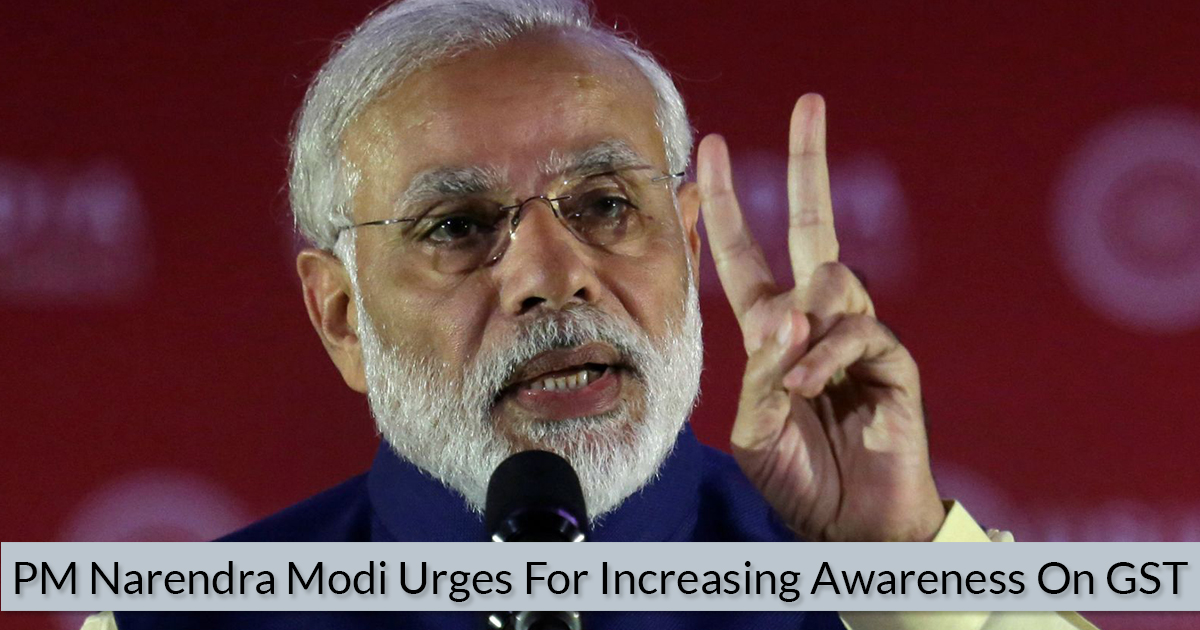The prime minister of India, Mr. Narendra Modi has given impressions to the general public to held discussions and try to understand the upcoming goods and service tax in a way to implement the tax regime in easy and smooth manner. In a video conference at India Today Conclave Mr. Modi said that “I want the entire country to discuss and try to understand GST, In GST, the entire process has been reached by consensus; the states have taken ownership. It is an example of cooperative federalism.”
The previous week, the apex committee handling all the GST related issues cleared all the related bills known for sorting the entangled cords of GST. All the five draft bills, UTGST (Union Territory GST), CGST (Central GST), IGST (Integrated GST), Compensation and SGST (State GST) were at last given a green flag to be implemented in a decisive way in the GST after the roll out. Now the remaining tasks are just to be approved by the Union Cabinet and table the bills in the current ongoing session of Parliament.
There are still some issues which are stuck in middle for the sake of proper implementation of SGST as the draft bills will be send for approval by the assemblies of Puducherry and Delhi. And about the UTGST, the union territories which don’t have assemblies like Andaman and Nicobar Islands, Lakshadweep, Daman and Diu and Dadra and Nagar Haveli are applicable respectively.
Read Also: GST Online Payment Guide for Petty Tax Payers India
In spite of clearing the main five bills which were to decide the destiny of GST, there are nine more bills pending in which five of them i.e. registration, payment, refund, invoice, and return are being approved and remaining four i.e. composition, valuation, input tax credit, and transitions bill are in the midst of discussion and is expected to be sorted in the council’s meeting scheduled on 31 March. After the meeting, the council is focused on adjusting all the goods and services in the defined slabs 5 per cent, 12 per cent, 15 per cent and 28 per cent.









